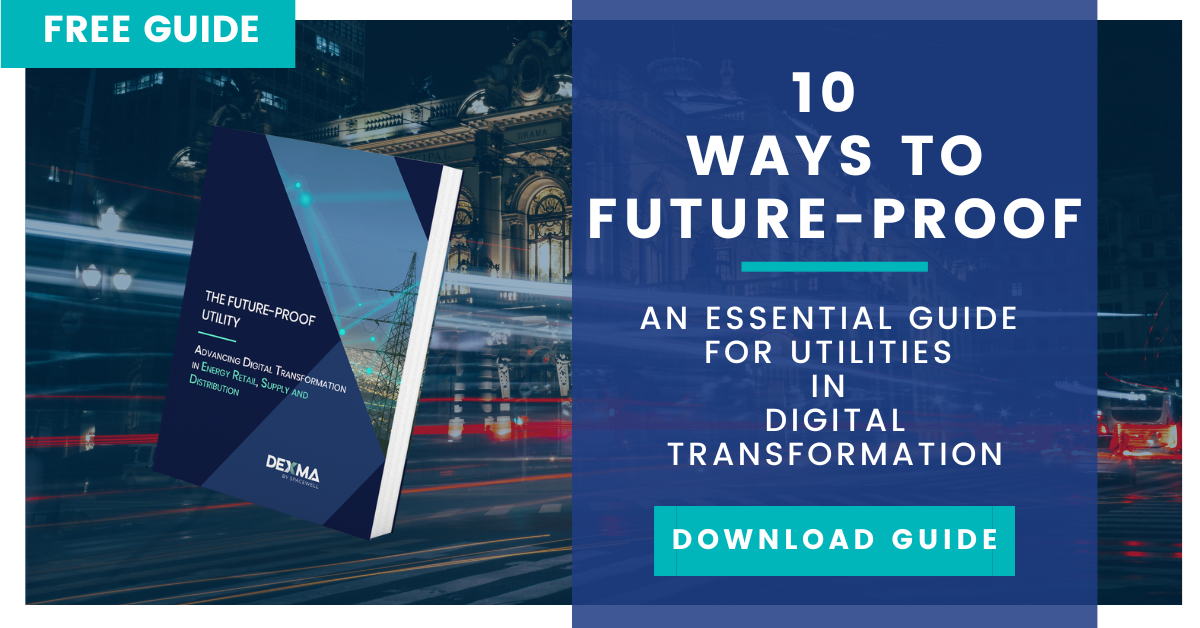Following DEXMA’s research and innovation strategy, DEXMA has launched a new R&D project called Eco-bot (Personalised ICT-tools for the Active Engagement of Consumers Towards Sustainable Energy).
The aim of project Eco-bot is to build an energy efficiency chatbot that can deliver personalised information on disaggregated energy usage through an intelligent and interactive virtual assistant. The ultimate goal of the project is a larger one, though: to actually nudge human behaviour towards energy efficiency. Through an attractive front-end interface, the resulting chatbot will enable seamless communication in a more natural and interactive way than offered by traditional mobile applications or websites.
Read on to learn more about this exciting R&D project at the leading edge of harnessing artificial intelligence for energy efficiency.
Energy Efficiency Chatbot: A More Human Path Toward Customer Engagement?
Chatbots are one way energy providers or facility managers can offer an always-on connection to their customers, providing peace of mind and eliminating fears of unresponsiveness. With a chatbot, utilities can automate the most repetitive customer service requests and offer the transparent, direct and solution-driven communication that modern consumers have come to expect. When customers feel connected, safe and informed, the quality of the relationship is elevated – churn is reduced and retention rates start to go up.
Mobile messaging and automated chatbots have additional uses in energy management, such as providing energy consultants and facility management professionals with relevant and updated information in real time, during emergencies, outages or breakdowns, for example.
Despite this promising potential, only a handful of working chatbots are found in the energy industry today. As mentioned in a previous post about utility customer engagement, the UK challenger utility Pure Planet has developed a customer-facing chatbot called WattBot. Powered by AI algorithms, WattBot was built to answer the usual customer queries drawing on Pure Planet’s team of energy experts.

Pretty specific, right? Despite being a nice solution for a particularly stressful time, there is still a clear market gap for energy efficiency chatbot technology, especially in the facility management and ESCO sectors. Project Eco-Bot aims to fill it by using existing NILM (non-intrusive load monitoring, also known as energy disaggregation) methods and advanced energy data analytics to break down energy consumption down to the appliance level, and communicating it through the energy efficiency chatbot interface. This should help raise awareness among both energy professionals and consumers when it comes to the most energy-consuming devices and behaviours.
Learn more about energy disaggregation and NILM here.
The Eco-Bot Project Consortium
The Eco-Bot Consortium consists of 9 project partners from 6 countries spanning Europe: Germany, Greece, Poland, Spain and the United Kingdom.
The project will test several different use cases through a total of 3 pan-European pilots:
-
-
- A B2C case led by Estebanell Energia, DEXMA partner and leading power utility in Catalonia. This use case will demonstrate how delivering personalised information on energy usage at the appliance level and relevant energy saving tips can affect consumers’ energy behaviour. Here the idea is to show how the personal, more “human” nature of chatbot technology can boost engagement and also how appliance-level energy consumption data can lead to increased energy efficiency.
-
-
-
- A B2B use case led by DEXMA, who will deploy the chatbot in the United Kingdom and Spain. In this case the pilot aims to show how chatbot technology can better engage business energy users, such as property managers and facility managers, and help make their daily work easier and more efficient.
-
-
-
- A B2B2C case that aims to target household energy users with smart meters in Germany. SENERCON, in collaboration with co2-online, intends to reach residential energy users directly through their energy savings account, which is available in 10 countries. The intention of this pilot is to deploy the chatbot while making use of existing energy and demographic data.
-
The Eco-Bot project is co-funded by the European Commission under the H2020 Programme topic “H2020 EU.3.3.1. – Reducing energy consumption and carbon footprint by smart and sustainable use”, according to Grant Agreement No. 767625.
Learn more about research, development and energy innovation activities at DEXMA here.



